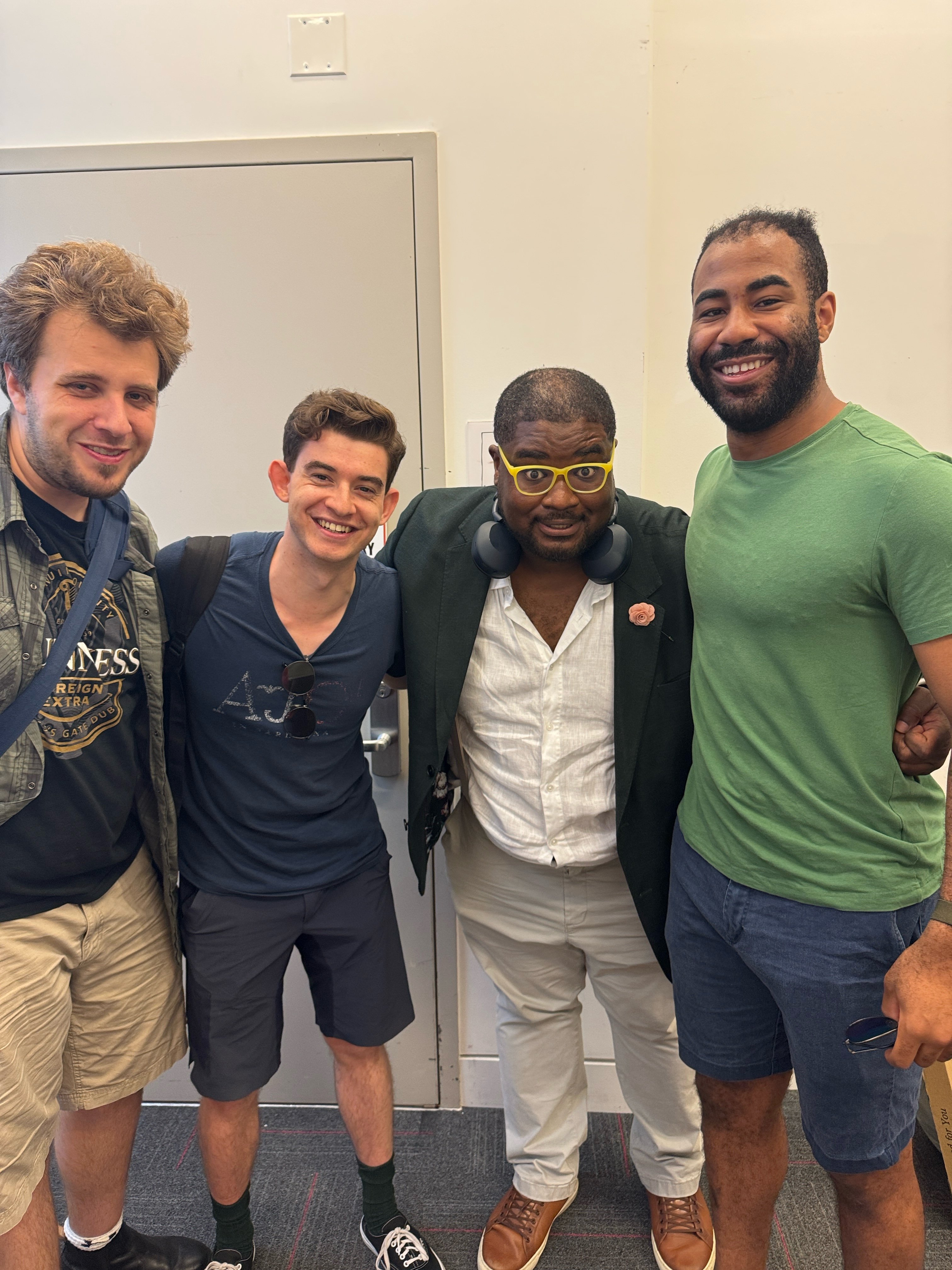
My Artistic Statement
I was drawn to theater because it sits at a strange intersection. It is one of the most accessible art forms to make, but one of the least accessible to share. You don’t need permission to pick up a script, gather a few people, and create. You can practice it anywhere. But to step onto a sanctioned stage, you need gatekeepers to say yes. That contradiction drives me. Theater pretends to belong to the people, yet it often hides behind walls built by institutions. I make work in that tension, the act of play as rebellion and the act of pretending as protest.
My process begins in openness. I never assume I know everything. I expect to learn from the page, from actors, and from the audience. I learn in the writing, I learn in the readings, I learn in rehearsal, and I keep learning once the play is up. Writing starts the chaos, and readings begin to shape it. When I direct, I strip the work down until only what matters remains. The process is discovery, not control. I collaborate to find truth in real time, and I don’t follow rules that don’t serve the play. Rules exist to guide, not to govern.
My work lives inside tension: power and survival, truth and justice, hope and cynicism. I draw inspiration from people who live inside those contradictions, who move through a world they are desperate to change. I am not interested in theater that flatters comfort. I want work that faces us with who we are, unflinchingly. Sometimes that means joy, sometimes pain, always honesty. When I write or direct, I try to lay the picture bare and let the audience examine it. I don’t want to lecture; I want reflection that feels dangerous.
Right now I am writing a one-act about a prisoner forced to choose between cops and justice, a man trapped between two versions of power. It is a play about how systems consume people and call it order. It humanizes the criminal and exposes the cop as an agent of control, a presence that terrorizes the neighborhood while calling it protection. I want audiences to feel conflict, not closure. Theater should not let us escape; it should make us face what we have built. I want audiences to leave recognizing that permission isn’t something given. It is something we reclaim together, in the act of facing what we would rather not see.
